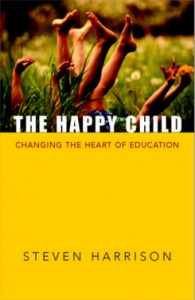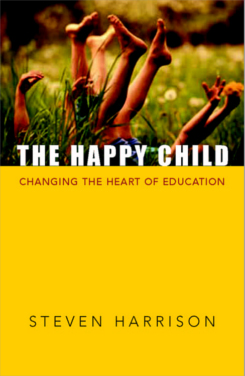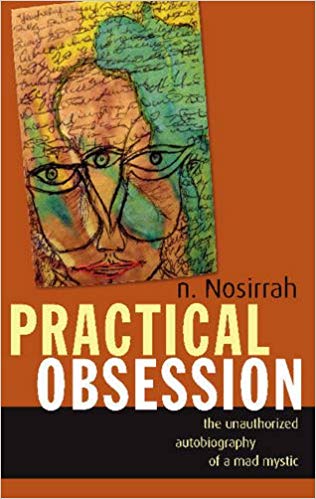“Perhaps all that education aspires to be is the preparation of the young person for their role in the larger society. This is certainly a good idea for society, but in the efficiency of producing citizen workers, are we missing the deeper meaning and higher purpose of learning. Have we forgotten about the spirit of the child, the purpose of this one life, the unique and fragile expression of a passionate and integrated life?” –from the book

$9.95
131 pages
softcover
ISBN 1-59181-000-0
In this thought-provoking new book, best-selling author Steven Harrison ventures far outside the box of traditional thinking about education. His radical proposal? Children naturally want to learn, he asserts, so let them direct their own education in democratic learning communities where they can interact seamlessly with their neighborhoods, their towns, and the world at large. Most learning systems apply external motivation through grades, rankings, teacher direction, and approval. The Happy Child suggests that a self-motivated child who is interdependent within a community can develop the full human potential to live a creative and fulfilling life.
Harrison focuses on the integration of the whole child, the learning environment, and the non-coercive spirit of curiosity-driven education. Part social-critic, part humanistic visionary, Harrison not only focuses on a reorientation of education, but the possibility of rethinking our families, communities and workplaces, and ultimately what gives our children, and all of us, real happiness. Harrison adds his voice to those of A. S. Neil, John Holt, and John Gatto who believe that contemporary schools can never be reformed sufficiently, but must be abandoned entirely for something new and vital to emerge.
What others have to say about The Happy Child:
This small, elegant book is easy to read—should you be in the throes of love’s madness, as it were, you still can concentrate on this book! Harrison’s prose has a lovely, Zen-like simplicity that supports his powerful message. He offers specific ways to “throw it all out” and start over with your authentic self, tranquil in the calm center of it all, finally at ease with all the paradoxes and contradictions of your all-too-human existence. Give it up. All of it. And all of it will be yours. -New Age Retailer
Addressing concepts of reality, the power of thought, and the dilemma of severance from godhead, this is a book that will make you think, even as its author challenges you to give up that troublesome habit, With a fiercely honest, tell-it-like-it-is style, Harrison challenges the individual to evolve beyond circumscribed forms of relating to that spontaneous place wherein life-and love-burst forth. -NAPRA Review
I like this book. I marked several pages to return to and mull over. Harrison’s model is radically different from our modern-day lives in general, but much of what he says will ring true for individual homeschooling families. I hope he writes another book where he can spend more time on the solutions now that he has defined the problems with our modern educational model so well. -Home Education Magazine
“Such a nobly simple idea that the true purpose of education should be happiness and so clearly reasoned. Steven Harrison speaks for the lives of children everywhere.” -Chris Mercogliano, author ofMaking It Up As We Go Along: The Story of the Albany Free School
“A clarion call for our culture to wise up and re-think what education-and the soul of a child-are really all about. Steven Harrison offers us something sorely lacking in today’s educational policy: a vision of true human potential and a practical philosophy for attaining it. Read this book and envision possibility.” -Jane M. Healy, Ph.D., author of Failure to Connect: How Computers Affect Our Children’s Minds
“This is a splendid book, offering fresh, new insights into a subject exhausted by truisms, pap, and let’s pretend. Harrison’s hard-biting social critique of the plight children and education are in should wake us up to our atrocious treatment of our young, that we might actually address their critical needs rather than simply ignoring them as usual.” -Joseph Chilton Pearce, author of The Crack in the Cosmic Egg
“Interest and the Nature of Learning” Talk by Steven Harrison
International Editions
- Arabic – Kalima
- Dutch (Het gelukkige kind) – To order visit Samsara Books or bol.com.
- German (Das glückliche Kind) – To order visit Edition Spuren or Amazon.de.
- India – To order the English edition published in India, visit Banyan Tree.
- Russian – Sophia Publishing House, 160 Frunze str., 160, Kiev, Ukraine
- Spanish (La infancia Feliz) – To order visit Ediciones La Llave
- Turkish – Dharma Yayinlari, Istanbul, Turkey


